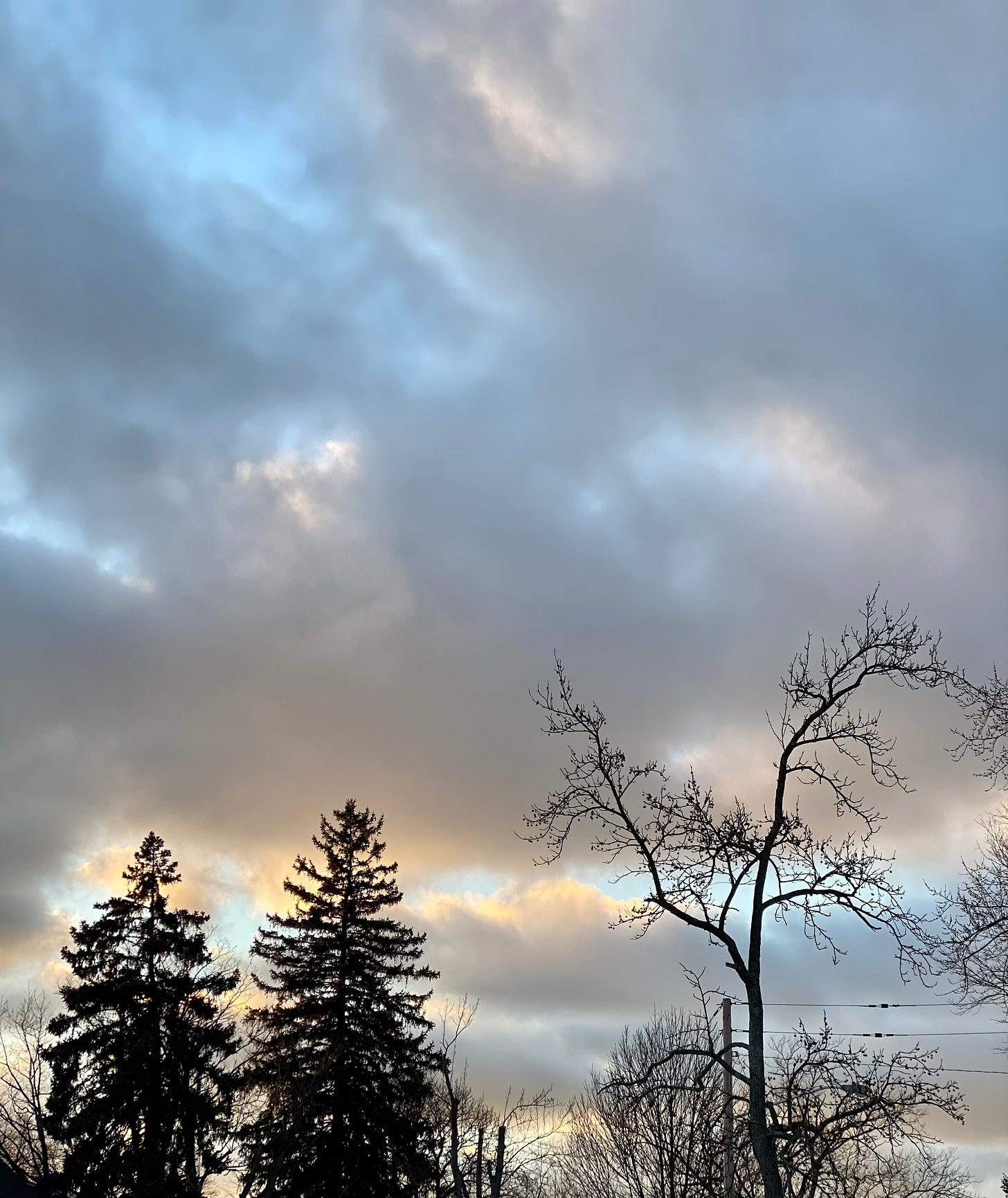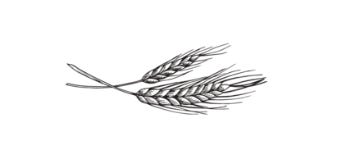Dear ones,
The part of my book that people most frequently tell me is their favorite is a passage about a particularly harrowing breakup. In it, I quote Judith Butler: “Let’s face it. We’re undone by each other. And if we’re not, we’re missing something.” In recounting my teenage heartbreak, I agree with Butler that the loss of this particular relationship felt like an unraveling. It’s a moment in the book (and thus, in my life) when I felt an acute sense of interconnectedness, made clear from the loss of romantic love, but expanded in the realization of how much all of our relationships not only shape us, but become us.
“We are not independent creatures in a vacuum--this I have known since my days of sharing food stamps and not calling the cops on our neighbors,” I recall. “Instead we are constantly bumping up against one another, picking things up that we wouldn’t otherwise, realizing what we love and who we are through someone else’s experience of them. And this, I think, is more than just tolerable—it’s a beautiful reminder that we need each other.”
I like that this part of the book resonates with people, I like how so many of us can relate to the mixing up of belonging and being. It’s very romantic, the way our becoming is also our loving, and the awareness that our ties to other people are as unmooring as they are anchoring. Butler’s quote is from one of their books on gender, and they go on: “when we speak about my sexuality or my gender, as we do (and as we must), we mean something complicated by it. Neither of these is precisely a possession, but both are to be understood as modes of being dispossessed, ways of being for another, or, indeed, by virtue of another.”
I keep thinking of this “mode of being dispossessed,” these “ways of being for another” juxtaposed to the work of boundaries. If you’re on pop-psych Instagram, in therapy, or have ever done 12-step anything, you know a lot about boundaries. If you’re new to them, they are simply the limits you set in interpersonal relationships. They are a way to avoid codependency by asserting and sticking to your needs regardless of other people’s behavior. It’s a beautiful practice of recognizing that while we have absolutely no control over our friends/lovers/family, we have the ability to define parameters around our own lives and decisions. An example of this might be as simple as turning your phone off at night, despite knowing you have a friend who loves to text you with their midnight thoughts. You don’t have to feel guilty for missing their text, and you also don’t have to ask them to change their behavior. You each do what works for you as a way to honor your and your friend’s autonomy. In this instance, boundaries might be maintained relatively conflict-free, but when we get into bigger needs and desires, boundary-setting becomes also a practice of navigating conflict.
We learn in boundary work to respond rather than to react to limits set that don’t match ours -- can we find ways to be comfortable and even glad when our loved ones do exactly what is best for them even if it’s not on the same timeline (etc.) as ours?
This, at first glance, butts heads with Butler’s undoing. And with most love songs, rom-com plots, and the feeling we get in our guts when we start to develop a crush. We want to “exist only by virtue of another” - e.e. cummings carries his beloved's heart in his own; Frida tells Diego that her joy is dependent on his and “fill[s] all the paths of my nerves which are yours”; and Diane di Prima wants to show you enough to love that will “break your heart forever.” Our bodies aren’t eager to create separation in love; we’re much more ferally inclined, I think, to want to find ways to break and rebuild our bodies together, to become like a potion, some amalgamation that can serve as manifestation of the magic we feel when we’re in the throes of the affective pulses of loving.
I sit with both of these as values: the all-consuming love that makes it hard to determine where you end and another begins, and also the purpose and importance of firm and integrity-based boundaries. I have gone from accusing boundaries of being bourgeois (and admittedly, they are harder to maintain when you are fighting for survival with only the help of other oppressed people), to realizing I needed them to show up for others the way I want to (without resentment, with energy, and sustainably). And I have, all the while, continued to know without question that deep love requires at least some level of selflessness.
But do these need to be in opposition? Maybe not.In The Communism of Love: An Inquiry into the Poverty of Exchange Value, Richard Gilman-Opalsky digs into Simone Weil’s musings on love. Weil very simply defines love as “belief in the existence of other human beings as such,” by which she means as they really are. Weil says that to love is to pay attention, and that in paying attention we are drawn to both the suffering and the joy of our beloved; we can “be filled with joy by the mere knowledge that [our] beloved is happy without sharing this happiness.” In Gilman-Opalsky’s interpretation, this embodied empathy is not a sign of a lack of boundaries, but rather an observation infused with political potential: “the beloved’s suffering and joy are...unlocked from the status of private property and become the suffering and joy of those who love them.”
This is not dissimilar to Butler above arguing that our gender (or sexuality, or desire, or grief) is not a possession we have, but rather a phenomenological modality co-created with those with whom we share space, life, love, decisions. What might it mean to create boundaries and autonomy in love while also rejecting neoliberal understandings of self and property?
I don’t have it entirely figured out, but I think the answer rests somewhere in the acknowledgement that our tools of self-preservation are actually in the service of deeper relationship to the truth of interconnectedness (or, to borrow a Buddhist concept, interdependence). We assert boundaries in love because we want our love to last - not just for our partners or parents or children, but for our neighbors, for the land, for, of course, the practice of revolutionary worldmaking. We want to feel the rush of the kind of love that urges us to think of ourselves as inseparable so we can remember that our oneness is aided by our autonomywith rather than our controlover. We want to remember that our love can be an invitation, as bell hooks describes, “to extend one's self for the purpose of nurturing one's own or another's growth.” We want to remember that love cannot exist in any condition that isn’t at least trying to create space for real freedom. (For ourselves, which is also, inevitably, for our beloved community.)
I will always love large. I love my partner, my mom and family, my friends, (and those who don’t fit neatly in any of those categories) with an enormity that can feel almost scary. (Weil again: “Human existence is so fragile a thing and exposed to such dangers that I cannot love without trembling.”) But I can work to maintain that as a reminder of why we struggle for a better world, as a reminder for my capacity, as a reminder that (I truly believe) god lives in every one of us. I can also love my own being - as shaped and wrecked and rebuilt with all of you - as a thing that is not mine, but a thing to which I have the most access to tend. And I can make choices that protect my energy so that when the lines get blurry - when my heart feels like it’s beating in the same rhythm as my beloved’s so much so that if their organ stops mine might too - I can remember the collective benefit of pausing, of reflection, of being in integrity with who I am (as composed of the history of all who’ve made me that).
This weekend and always, I am wishing you liberated love and sturdy boundaries. I am wishing you, sweet reader, a Happy Valentine’s Day. <3
love & solidarity,
raechel
PS: As I said last month, the newsletter will continue to be pretty sporadic until May. Until then I’ll send out occasional letter/essays or shorter notes with the Reading, Watching, Listening recs, etc. (rather than both in one letter, as it has been previously). Additionally, I will be preparing to re-launch my Dear Comrade Femme column (!), and I’m looking for your advice inquiries! For those of you who are unfamiliar: “Dear Comrade Femme is an advice column meets queer theory daydream meets revolutionary love letter. With her toolkit (working-class survival skills, queer femme wisdom, years of radical Left praxis, and a little magic), Comrade Femme responds to your questions about politics, sex, identity, feelings, relationships, spirituality and the intersections of them all.” Please write to me at raechelannejolie@gmail.com with “Dear Comrade Femme” in the subject line.
PPS (with apologies to my family members who read this)/#SponCon: For Valentine’s Day, why not treat yourself to the ioba Oh My G vibrator with the help of my discount code! Or gift one to a babe in your life who likes penetrative toys! Enter FEMME at checkout for 30% off. <3




